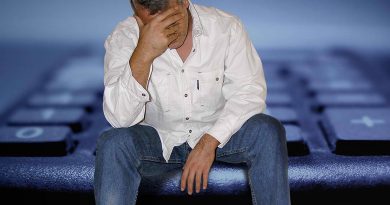Learning to Save and Invest Early
MY MONEY STORY
Learning to Save and Invest Early
By Yvette Michelle Llanos Dee Yao
Belonging to a traditional Chinese family, I was raised to be very frugal, hardworking, business-minded, and practical. I sure was and still am. I remember saving most of the allowance given to me when I was a kid. My mother would always tease me that I am so kuripot that the only thing I buy in school was water. But even that is not true because I bring my own water jug and would not need to buy one.
When I get my ampaos (red envelopes with money) during birthdays and Christmas, I have the money deposited straight to my bank account. I never got the habit of spending money given to me. If it’s not anything important, then it is not worth spending on. At an early age, I already formed the habit of saving, thanks to my mother.
When I was in high school, I remember my father handing me an ATM and told me to use it if I need anything to spend on. I just looked at it, placed it in my wallet, and it stayed there for a really long time—untouched. I never withdrew money from that ATM and my father just told me one day that he already cut it. I wasn’t given another ATM since then.
I rarely ask money from my parents, except when I needed to buy an expensive book, photocopy a lot of school materials, or join a field trip. How did I manage to save so much? Simple, I started saving early, and on top of that I looked for alternative sources of income. Being Chinese, most of my summer was spent helping out in the business where we got some form of compensation. I also spent my summer being a student assistant in ICA, where we also get paid for helping out during enrollment. During my stint there, I was even able to get a tutee and had managed to take on the tutor role for a year. From time to time, I also sell stuff like cell phone batteries, CDs, gift items, and accessories to my friends.
On my own
When I stepped into college in 2000, I wanted to start handling my own finances. I got all my money from my mother and asked the permission of my father to let me handle all of my money. I wanted to have it consolidated so I’ll get a better picture of how much I had. I remember the reaction of our secretary when I told her that I wanted to get my money from my father, she was both surprised and proud. It was never expected. There was never a contention, most probably because they knew I wouldn’t spend it on anything impractical.
I wanted to try out investing and so I converted 70% of the money I had to dollars. I bought it at P53.85. After a month or so it started going up and – voila! – the next time I checked it was already at P56. Was that a good decision, especially now that the exchange rate is roughly at 46? Well, let’s just say it pays to be disciplined and invest early, even if the outcome is not necessarily favorable.
My pesos and dollars were both placed in time deposits, with very low rates. I asked my mother if there is a better alternative in the market. She then introduced me to CTFs (common trust funds), which are now known as UITFs (unit investment trust funds). I pooled my money with my mother to get a better rate, the minimum was $10,000.
Catching the investing bug
In my third year of college, I took up a Financial Investment Analysis class under George Gohu. I enjoyed it very much. We were asked to participate in an online trading competition, Virtual Tycoon. It was during that time that I developed a love for the stock market.
When I graduated from Ateneo and joined Philamlife-AIG as a management trainee, my financial world became bigger. I got introduced to so many things. The first thing I tried was mutual funds, which gave me very good yields. Being an employee of an insurance company, I purchased several personal insurance as well since I would eventually need it, especially when I get married.
2004 was my debut year in the stock market. My first stocks were IPO issues of SM and MWC. Too bad I wasn’t able to hold on to my MWC, which would have tripled in value by now. My knowledge and experience in the market got broader year after year. After seeing that my broker won’t lower down the commission fees they charged me, I opted to trade online. It was then that I met Juanis Barredo and Conrado Bate of CitisecOnline.com who gave me valuable insights that help changed my trading habits, from a speculator and day trader to a more disciplined and keener investor.
But this doesn’t mean I don’t lose money. I do but I have learned to cut losses which I believe is something most people, especially first time investors, won’t do. Choosing the right stocks and holding on for the long term is also key in investing in this market. If one has little time and minimal level of expertise, it is better to invest in mutual funds, UITFs, or variable life insurance.
To date, I have already tried on quite a handful of financial instruments – CASA accounts, time deposits, mutual funds, insurance, stocks, UITFs, corporate notes issued through banks, and even currency trading. But the number of instruments a person has is not a measure of how financially adept a person is. What is more important is that a person understand how these instruments work and whether it has a role to play in her portfolio – either as a diversification tool or to meet her financial goals.
If asked how early one should invest, I would say that it should be as soon as possible. Kids should be taught about saving and investing at an early age. Financial discipline has to be ingrained to the children’s mentality as soon as they can understand it. My colleagues would actually tease me that the first word my baby would utter would be “A-C” (trading symbol for Ayala Corporation). Kids or teenagers should also be given a freehand on how to spend and invest their money (with some supervision). On top of that, a person should learn to explore and read about the instruments that interest him or her. Do not procrastinate investing and don’t be lazy in filling out those application forms.
My friend asked me what made it easy for me to decide to get married, I quickly replied “be financially independent” and everything follows.
[sidebar]
MY MONEY LESSONS
The ABCs of Investing
Yvette Michelle Llanos Dee Yao caught the investing bug early on. Here are some things she learned:
- Make mistakes early. Yvette started investing in currencies, converting 70% of her savings to dollars. It went up, only to later fall in value. Despite the loss, she says it still pays to be disciplined and invest early than not trying at all.
- Try everything. She has not used lack of knowledge as an excuse for not investing. Rather, Yvette has tried all sorts of investment vehicles, from time deposits to stocks. But she got into them after understanding how they work and how they would contribute to her portfolio.
- Don’t procrastinate. Procrastination is one of the biggest obstacles to investing. Yvette believes kids should be taught about money as early as possible and teenagers should be given a free hand (with some handholding) in managing their money.




wow! what a great story! reading your story is knowing that i am so late to really think how to become financial independent… I am a family man with two kids and until now we dont have insurance and sad to say savings..(isang kahig isang tuka pa rin kami)…but now knowing your story…its really motivate me to invest..im trying to learn the stocks investment…hope to have more knowledge… More power!
Wow! Too bad I didn’t have that much discipline when it comes to saving money when I was a kid. Now, I’m a fresh graduate and I don’t have a job yet. I’m still enrolling in series of training (to boost my self-confidence and to add some spices to my resume). Thank you for sharing your inspiring story. I’m doing my best to spend money only for the things I need. I don’t have any investment yet but I’m hoping to have some in the future. ^_^